Ditapis dengan
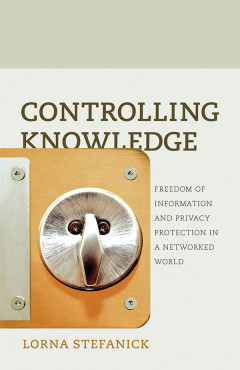
Controlling knowledge :freedom of information and privacy protection in a net…
Digital communications technology has immeasurably enhanced our capacity to store, retrieve, and exchange information. But who controls our access to information, and who decides what others have a right to know about us? In Controlling Knowledge, author Lorna Stefanick offers a thought-provoking and user-friendly overview of the regulatory regime that currently governs freedom of information a…
- Edisi
- -
- ISBN/ISSN
- 9781926836614
- Deskripsi Fisik
- xi, 251p. : ill.
- Judul Seri
- -
- No. Panggil
- 342.0853 STE c

Human and machine consciousness
- Edisi
- -
- ISBN/ISSN
- 9781783743018
- Deskripsi Fisik
- 234 p.; 24 cm.
- Judul Seri
- -
- No. Panggil
- 150 GAM h
- Edisi
- -
- ISBN/ISSN
- 9781783743018
- Deskripsi Fisik
- 234 p.; 24 cm.
- Judul Seri
- -
- No. Panggil
- 150 GAM h
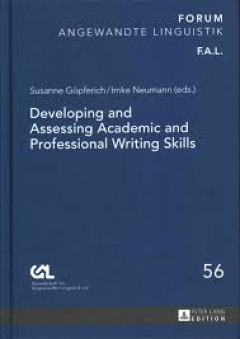
Developing and assessing academic and professional writing skills
- Edisi
- -
- ISBN/ISSN
- 9783653049732
- Deskripsi Fisik
- 205 p.; 24 cm.
- Judul Seri
- -
- No. Panggil
- 808.0071 DEV d
- Edisi
- -
- ISBN/ISSN
- 9783653049732
- Deskripsi Fisik
- 205 p.; 24 cm.
- Judul Seri
- -
- No. Panggil
- 808.0071 DEV d
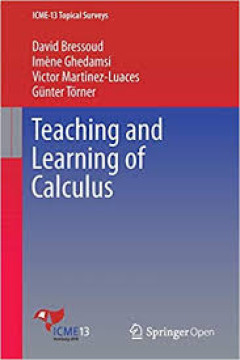
Teaching and learning of calculus
This “ICME-13 Topical Survey” aims to give a view of some of the main evolutions of the research in the field of learning and teaching Calculus, with a particular focus on established research topics associated to limit, derivative and integral. These evolutions are approached with regard to the main trends in the field of mathematics education such as cognitive development or task design…
- Edisi
- -
- ISBN/ISSN
- 9783319329741
- Deskripsi Fisik
- -
- Judul Seri
- -
- No. Panggil
- 515 BRE t

History of mathematics teaching and learning
The history of mathematics education is afield of study that is both old and new. It is old because scholarly works in the field began to appear over 150 years ago. Schubring (2014a) refers to Fisch (1843), as possibly thefirst work on the subject published in Germany. In the United States thefirst dissertations on mathematics education (Jackson 1906; Stamper 1906) focused specifically on i…
- Edisi
- -
- ISBN/ISSN
- 9783319316154
- Deskripsi Fisik
- -
- Judul Seri
- -
- No. Panggil
- 510.71 KAR h

Women and migration:responses in art and history
- Edisi
- -
- ISBN/ISSN
- 9781783745678
- Deskripsi Fisik
- 670 p.; 24 cm.
- Judul Seri
- -
- No. Panggil
- -
- Edisi
- -
- ISBN/ISSN
- 9781783745678
- Deskripsi Fisik
- 670 p.; 24 cm.
- Judul Seri
- -
- No. Panggil
- -

Science as social existence:heidegger and the sociology of scientific knowledge
n this bold and original study, Jeff Kochan constructively combines the sociology of scientific knowledge (SSK) with Martin Heidegger’s early existential conception of science. Kochan shows convincingly that these apparently quite different approaches to science are, in fact, largely compatible, even mutually reinforcing. By combining Heidegger with SSK, Kochan argues, we can explicate, elab…
- Edisi
- -
- ISBN/ISSN
- 9781783744114
- Deskripsi Fisik
- 444 p.
- Judul Seri
- -
- No. Panggil
- -

Oral literature in Africa
- Edisi
- -
- ISBN/ISSN
- 9781906924720
- Deskripsi Fisik
- xliv + 570 p. ; 24 cm.
- Judul Seri
- -
- No. Panggil
- -
- Edisi
- -
- ISBN/ISSN
- 9781906924720
- Deskripsi Fisik
- xliv + 570 p. ; 24 cm.
- Judul Seri
- -
- No. Panggil
- -
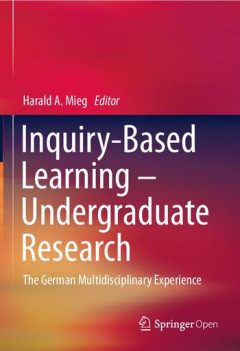
Inquiry-based learning -- undergraduate research :the German multidisciplinar…
This open access book provides a systematic overview of experiences with Inquiry-Based Learning (IBL) and undergraduate research (UR) in German universities, covering both research universities (Universitäten) and universities of applied sciences (Fachhochschulen). Divided into three parts, the book starts with the principles and common practices of IBL/UR at all universities. Part Two discuss…
- Edisi
- -
- ISBN/ISSN
- 9783030142230
- Deskripsi Fisik
- xvi, 406p. : ill.
- Judul Seri
- -
- No. Panggil
- 378 INQ i
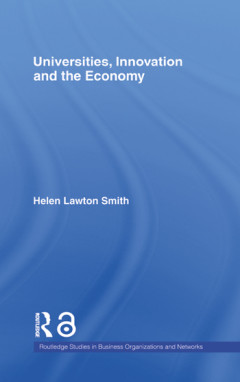
Universities, innovation and the economy
Universities are increasingly expected to be at the heart of networked structures contributing to society in meaningful and measurable ways through research, the teaching and development of experts, and knowledge innovation. While there is nothing new in universities’ links with industry, what is recent is their role as territorial actors. It is government policy in many countries that univer…
- Edisi
- -
- ISBN/ISSN
- 9781134344185
- Deskripsi Fisik
- xii, 265p. : ill.
- Judul Seri
- -
- No. Panggil
- 338.476200094 SMI u
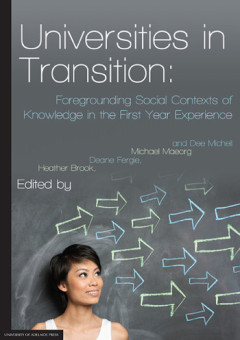
Universities in transition :foregrounding social contexts of knowledge in the…
Universities are social universes in their own right. They are the site of multiple, complex and diverse social relations, identities, communities, knowledges and practices. At the heart of this book are people enrolling at university for the first time and entering into the broad variety of social relations and contexts entailed in their ‘coming to know’ at, of and through university. By r…
- Edisi
- -
- ISBN/ISSN
- 9781922064837
- Deskripsi Fisik
- xi, 244p. : ill.
- Judul Seri
- -
- No. Panggil
- 378.1980994 UNI u

The social dynamics of open data
The Social Dynamics of Open Data is a collection of peer reviewed papers presented at the 2nd Open Data Research Symposium (ODRS) held in Madrid, Spain, on 5 October 2016. Research is critical to developing a more rigorous and fine-combed analysis not only of why open data is valuable, but how it is valuable and under what specific conditions. The objective of the Open Data Research Symposium a…
- Edisi
- -
- ISBN/ISSN
- 9781928331568
- Deskripsi Fisik
- viii, 200p. : ill.
- Judul Seri
- -
- No. Panggil
- 352.88 SOC s

Sharing knowledge, transforming societies :the Norhed Programme 2013-2020
"In June 2016, the Norwegian Programme for Capacity Development in Higher Education and Research for Development (Norhed) hosted a conference on the theme of ‘knowledge for development’ in an attempt to shift the focus of the programme towards its academic content. This book follows up on that event. The conference highlighted the usefulness of presenting the value of Norhed’s different p…
- Edisi
- -
- ISBN/ISSN
- 9781928502005
- Deskripsi Fisik
- xxxix, 570p. : ill.
- Judul Seri
- -
- No. Panggil
- 378.6 SHA s
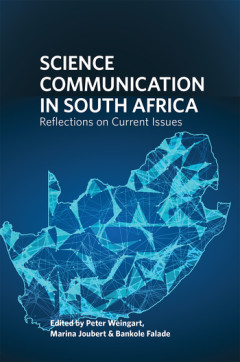
Science communication in South Africa :reflections on current issues
"Why do we need to communicate science? Is science, with its highly specialised language and its arcane methods, too distant to be understood by the public? Is it really possible for citizens to participate meaningfully in scientific research projects and debate? Should scientists be mandated to engage with the public to facilitate better understanding of science? How can they best communicate …
- Edisi
- -
- ISBN/ISSN
- 9781928502050
- Deskripsi Fisik
- iv, 231p. : ill.
- Judul Seri
- -
- No. Panggil
- 001.4028558 SCI s
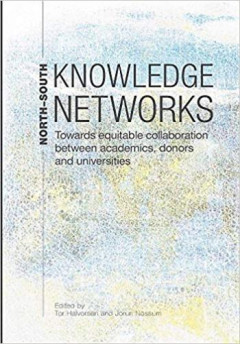
North-South knowledge networks :towards equitable collaboration between acade…
Since the 1990s, internationalisation has become key for institutions wishing to secure funding for higher education and research. For the academic community, this strategic shift has had many consequences. Priorities have changed and been influenced by new ways of thinking about universities, and of measuring their impact in relation to each other and to their social goals. Debates are ongoing…
- Edisi
- -
- ISBN/ISSN
- 9781928331308
- Deskripsi Fisik
- xv, 310p. : ill.
- Judul Seri
- -
- No. Panggil
- 378 NOR n

Open data in developing economies :toward building an evidence base on what w…
Recent years have witnessed considerable speculation about the potential of open data to bring about wide-scale transformation. The bulk of existing evidence about the impact of open data, however, focuses on high-income countries. Much less is known about open data’s role and value in low- and middle-income countries, and more generally about its possible contributions to economic and social…
- Edisi
- -
- ISBN/ISSN
- 9781928331599
- Deskripsi Fisik
- v, 275p. : ill.
- Judul Seri
- -
- No. Panggil
- 352.38091724 VER o

Knowledge for a sustainable world :a Southern African-Nordic contribution
The search for answers to the issue of global sustainability has become increasingly urgent. In the context of higher education, many universities and academics are seeking new insights that can shift our dependence on ways of living that rely on the exploitation of so many and the degradation of so much of our planet. This is the vision that drives SANORD and many of the researchers and instit…
- Edisi
- -
- ISBN/ISSN
- 9781928331049
- Deskripsi Fisik
- xi, 244p. : ill.
- Judul Seri
- -
- No. Panggil
- 338.96807 KNO k
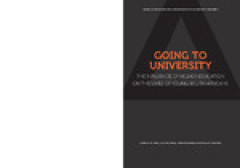
Going to university :the influence of higher education on the lives of young …
Around the world, more young people than ever before are attending university. Student numbers in South Africa have doubled since democracy and for many families, higher education is a route to a better future for their children. But alongside the overwhelming demand for higher education, questions about its purposes have intensified. Deliberations about the curriculum, culture and costing of p…
- Edisi
- -
- ISBN/ISSN
- 9781928331698
- Deskripsi Fisik
- ix, 164p. : ill.
- Judul Seri
- -
- No. Panggil
- 378.68 GOI g
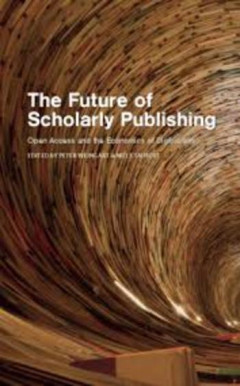
The future of scholarly publishing :open access and the economics of digitisa…
The formal scientific communication system is currently undergoing significant change. This is due to four developments: the digitisation of formal science communication; the economisation of academic publishing as profit drives many academic publishers and other providers of information; an increase in the self-observation of science by means of publication, citation and utility-based indicato…
- Edisi
- -
- ISBN/ISSN
- 9781928331537
- Deskripsi Fisik
- ix, 277p. : ill.
- Judul Seri
- -
- No. Panggil
- 070.57973 FUT f

The Politics of language contact in the Himalaya
- Edisi
- -
- ISBN/ISSN
- 9781783747078
- Deskripsi Fisik
- 200 p.; 23 cm.
- Judul Seri
- -
- No. Panggil
- 306.44 POL p
- Edisi
- -
- ISBN/ISSN
- 9781783747078
- Deskripsi Fisik
- 200 p.; 23 cm.
- Judul Seri
- -
- No. Panggil
- 306.44 POL p
 Karya Umum
Karya Umum  Filsafat
Filsafat  Agama
Agama  Ilmu-ilmu Sosial
Ilmu-ilmu Sosial  Bahasa
Bahasa  Ilmu-ilmu Murni
Ilmu-ilmu Murni  Ilmu-ilmu Terapan
Ilmu-ilmu Terapan  Kesenian, Hiburan, dan Olahraga
Kesenian, Hiburan, dan Olahraga  Kesusastraan
Kesusastraan  Geografi dan Sejarah
Geografi dan Sejarah